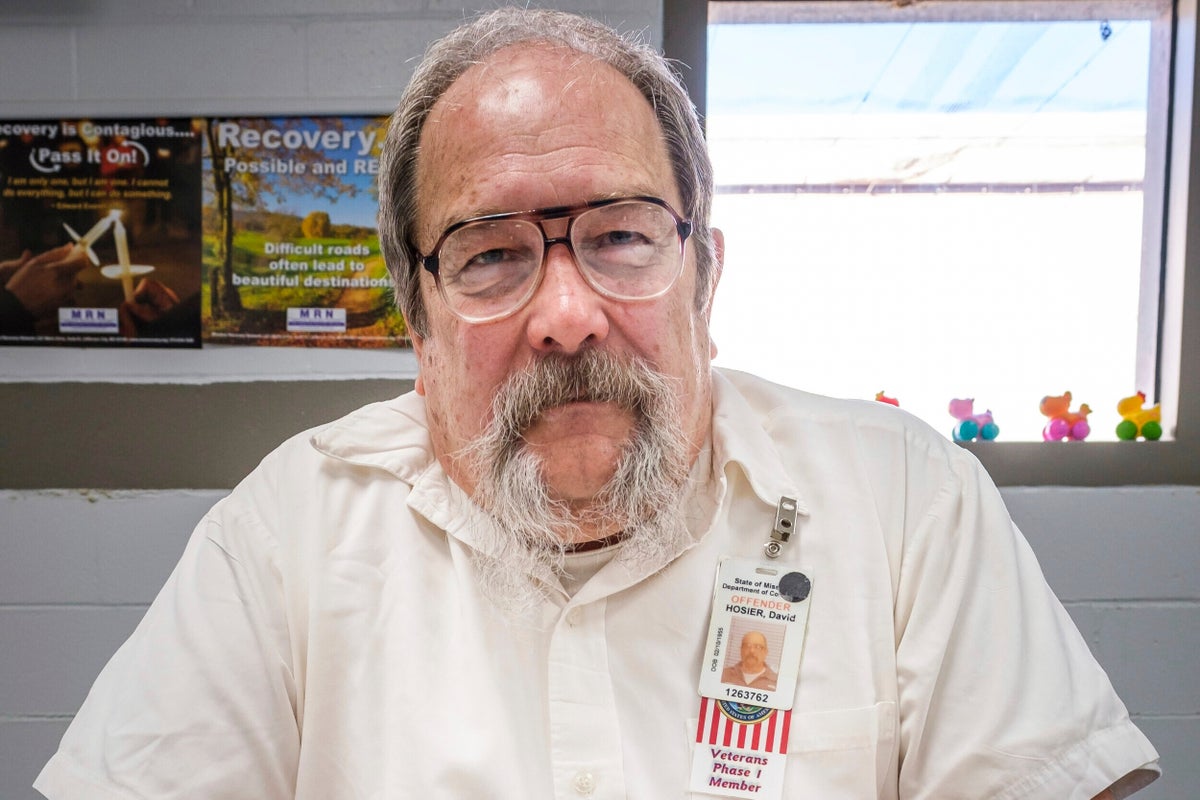
As Missouri Gov. Mike Parson weighs a clemency request for condemned inmate David Hosier, at least one person is unhappy with the petition: Hosier himself.
The 69-year-old is set to be executed Tuesday for the 2009 deaths of a Jefferson City couple, Angela and Rodney Gilpin. Randy Dampf, a Jefferson City police officer at the time of the killings and now an investigator for the county prosecutor, said Hosier had a romantic relationship with Angela Gilpin and was angry with her for breaking it off.
The clemency petition is not public, but Hosier said in a telephone interview with The Associated Press that it focused too much on the trauma of his Indiana State Police sergeant father being killed in the line of duty when Hosier was 16; and not enough on the lack of fingerprints, DNA or eyewitnesses tying him to the Gilpins' deaths. Glen Hosier was shot to death by a murder suspect in 1971 after entering a home.
“They did exactly the opposite of what I wanted them to do,” Hosier said of his attorneys' approach to the clemency petition. “I told them I didn’t want the ‘boo-hoo, woe is me.’ All that stuff happened 53 years ago, OK? It has nothing to do with why I’m sitting here right now.”
Hosier's fate rests solely with Parson, a Republican and a former county sheriff who has overseen 10 executions since taking office in 2018. One of Hosier's lawyers, federal public defender Larry Komp, said Monday that there are no last-minute court appeals pending.
The governor's office did not return a message seeking comment.
Hosier wheezed at times when he spoke and his voice was weak. In mid-May, he was taken from the prison to a hospital — a rare move for death row inmates. He was diagnosed with atrial fibrillation. He said he's on medication, but continues to feel poorly.
Hosier spent four years in active duty in the Navy and later worked as a firefighter and EMT in Jefferson City. He acknowledged his 2009 affair with Angela Gilpin and that she ended it and reconciled with her husband. In September 2009, they were shot to death near the doorway of their apartment.
Detective Jason Miles said Hosier made numerous comments to other people threatening to harm Angela Gilpin in the days before the killings.
After the shootings, police found an application for a protective order in Angela Gilpin’s purse, and another document in which she expressed fear that Hosier might shoot her and her husband.
Hosier was an immediate suspect, but police couldn’t find him. They used cellphone data to track him to Oklahoma. A chase ensued when an Oklahoma officer tried to stop Hosier’s car. When he got out, he told the officers, “Shoot me, and get it over with,” court records show.
Officers found 15 guns, a bulletproof vest, 400 rounds of ammunition and other weapons in Hosier’s car. The weapons included a submachine gun made from a kit that investigators maintain was used in the killings, though tests on it were inconclusive.
A note was found in the front seat of Hosier’s vehicle. “If you are going with someone do not lie to them,” it read in part. “Be honest with them if there is something wrong. If you do not this could happen to YOU!!”
Hosier said he wasn’t fleeing to Oklahoma, but was simply on a long drive to clear his mind. He had the guns because he likes to hunt, he said. He didn’t recall a note in the car.
The Missouri Supreme Court upheld his conviction in 2019.
The execution would be the second in Missouri this year. Brian Dorsey was executed in April for killing his cousin and her husband in 2006.







